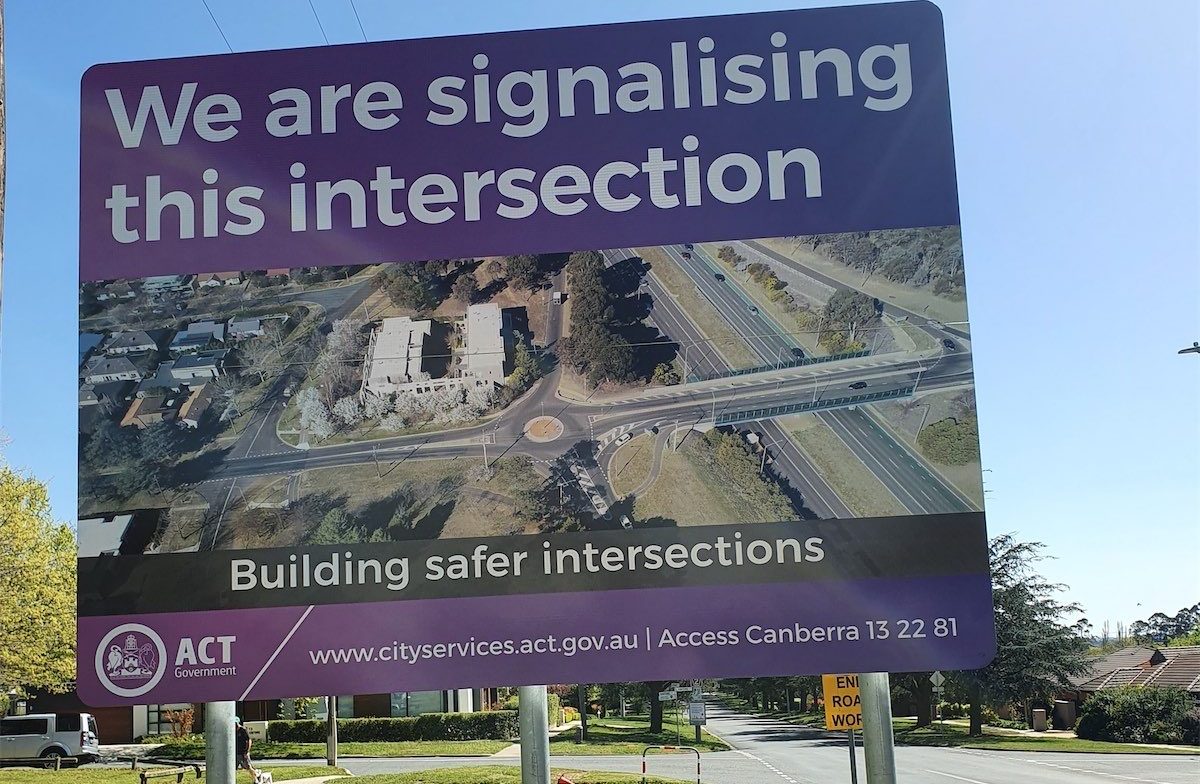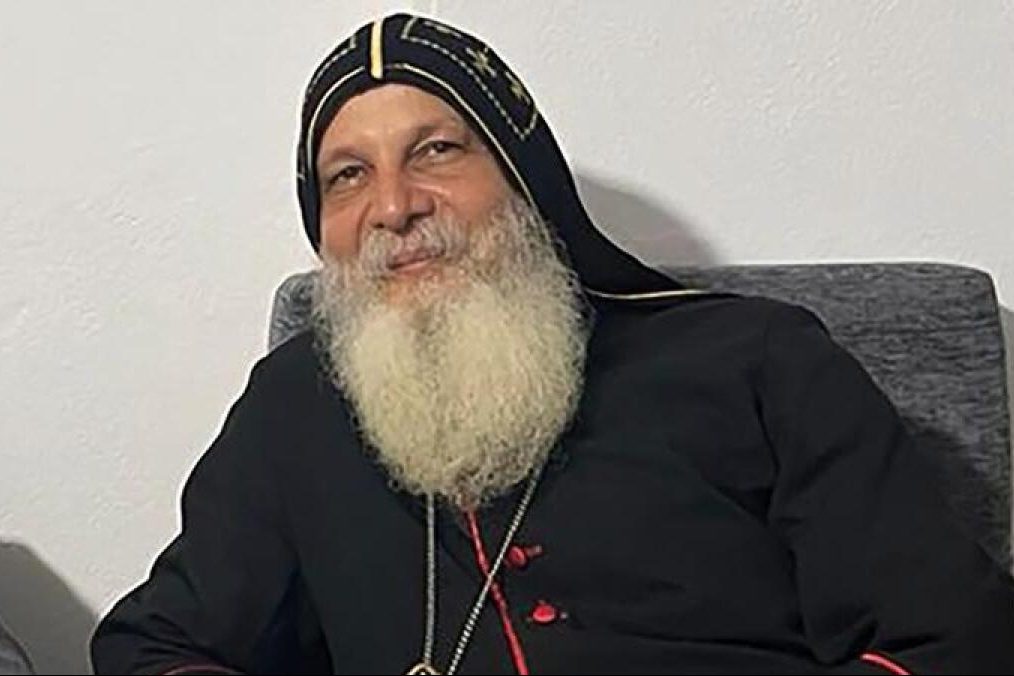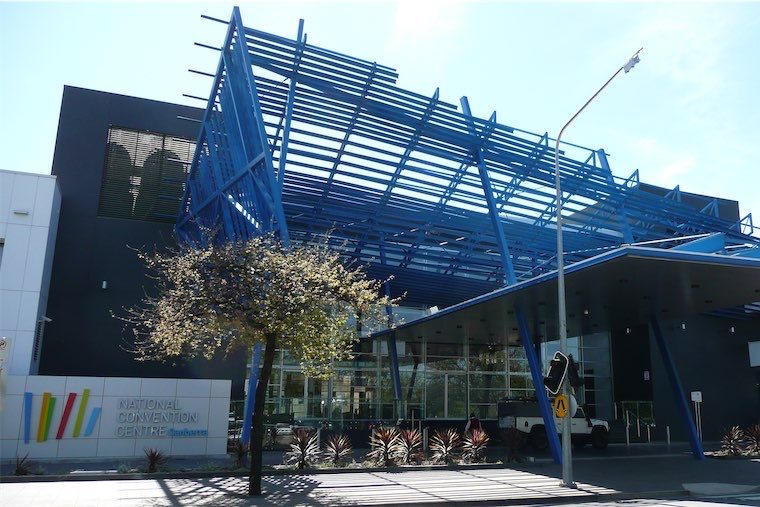
“When a plethora of corflute signs appear just before an election, it is fair to ask how much was this in the community interest and how much was it an election strategy. It is also fair to ask how much taxpayers’ money was spent in the process,” asks political columnist MICHAEL MOORE.
ELECTIONS in Australia are vulnerable to exploitation that will seriously undermine our democracy. This type of corruption often starts with the smallest things and grows to an expectation and a “right”. It cannot be left unchecked.
Government use of taxpayers’ money to support their own party’s re-election is a case in point. There is a fine line between the government putting its best forward and celebrating achievements on the one hand, and simply electioneering on the other.
Just before the last ACT election, the government flooded the streets of Canberra with signs. These signs warned of pedestrians and cyclists in suburbs and drew motorists’ attention to their responsibilities as a driver. No doubt the government could argue that this was part of the “Safe Systems” approach and consistent with their “Vision Zero by 2050”.
However, when a plethora of corflute signs that are zip-tied to poles appear just before an election, it is fair to ask how much was this in the community interest and how much was this an election strategy. It is also fair to ask how much taxpayers’ money was spent in the process.
Similar strategies were used to celebrate what the government wanted to promote such as commitments that it had made, for example, in the capital works program.
Campaigning with our money on an expectation of what a returned government will deliver crosses the threshold between what is in the interest of the party compared to what is in the interest of the community.
Take the street signs that were erected over a year ago letting the community know that particular intersections would be signalised. Well over a year later the same signs are starting to fade with the intensity of the sun and the frustration of waiting motorists.
It is three years before the next election. However, these signs stand as a monument to an election promise that has not been delivered. They are also evidence of a commitment to a capital-works system that is not delivering on government promises.
The use of taxpayers’ money to boost an incumbent government’s chances at the next election is not restricted to the ACT. Paul Karp, writing in “The Guardian” recently, identified $59 million set aside by the Morrison government to run advertisements enhancing its chances of returning to government at the upcoming election.
The insight came from government tenders that have seen the light of day thanks to a Senate Estimates Committee examining the Department of Industry, Science, Energy and Resources. The government has already spent $12.9 million on a “Positive Energy” campaign between September and the COP26 Climate Conference in Glasgow.
No doubt, it takes a great deal of (taxpayers’) money to explain its backflip on climate change and to market the pathetically weak policy with minimal real government commitments to reach “net zero by 2050”.
As explained by Paul Karp: “That spending included $488,000 on market research, $10.7m on ad buys, $1.8m on creative work, $1m on public relations, $138,000 on a website and $190,000 on evaluation”. And this is chicken feed compared to another $50 million or so that is to be spent on a range of other activities designed to market the best aspects of the government.
This is the problem. On the one hand is the pretence of selling the government’s ideas and achievements in the interest of the public. On the other, is the reality of selling the successes of a particular party in government. It is the latter that relies on a completely unacceptable use of public money.
Had the federal government finally been prepared to support an effective anti-corruption commission with teeth and the power to investigate politicians, including government ministers, such matters could be independently assessed for integrity or lack of integrity. However, it appears that the current government just has too much to lose.
Democracy is challenged and weakened when self-interest, including of political parties, trumps the community interest. Using taxpayers’ money in the interest of political advantage is simply corrupt and undermines democracy.
Michael Moore is a former member of the ACT Legislative Assembly and an independent minister for health. For the past fifteen years he has been a political columnist with “CityNews”.
Who can be trusted?
In a world of spin and confusion, there’s never been a more important time to support independent journalism in Canberra.
If you trust our work online and want to enforce the power of independent voices, I invite you to make a small contribution.
Every dollar of support is invested back into our journalism to help keep citynews.com.au strong and free.
Thank you,
Ian Meikle, editor





Leave a Reply